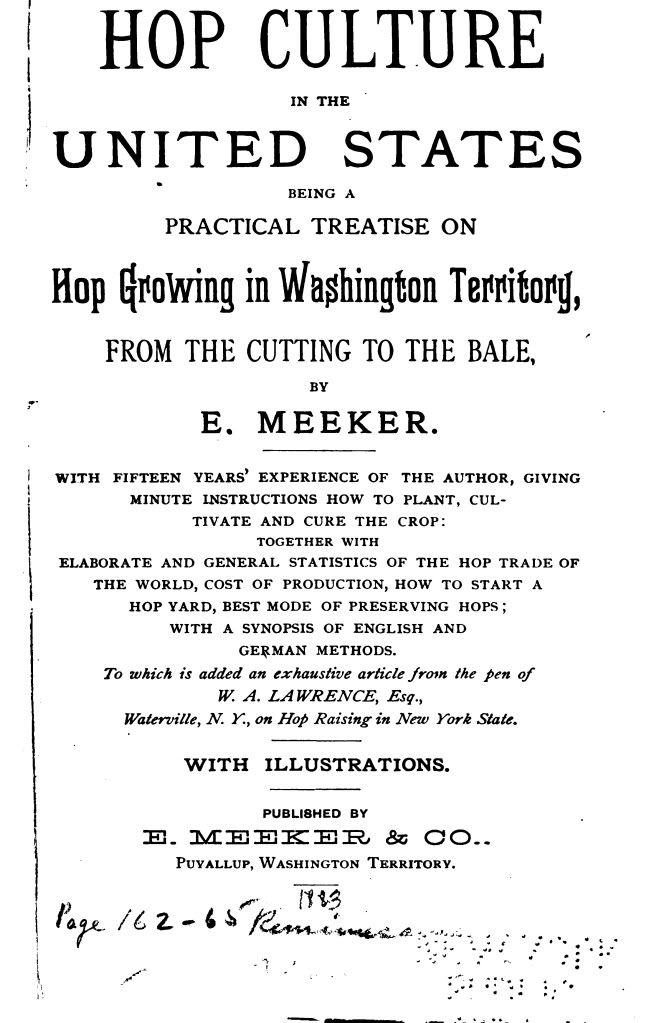
Beer is proof God loves us and wants us to be happy.There are plenty of references to beer in Benjamin Franklin's writings and other papers. His wife, Deborah, mentions beer in a list of household expenses for May 1762. Richard Saunders (one of Franklin's pseudonyms) describes Mead as "the best of Small Beer" (Poor Richard Improved, 1765). In describing objections of the American colonists to the Stamp Act, he noted the "too heavy Duty on foreign Mellasses" interfered in procurement of "one of the Necessaries of Life ... universally a principal Ingredient in their common Beer" (Fragments of a Pamphlet on the Stamp Act). There are also references to Thomas Beer, whom John Adams mentioned, "had been obliged to fly from England, for having assisted American Prisoners to escape" (Adams to Franklin, 18 October 1781).
Attributed to Benjamin Franklin
These references are found easily among the thirty-four to "beer" in the digitized edition of The Franklin Papers at Yale. These papers comprise thirty-nine published volumes and more in the works. A search of the same digital archives produces two hundred twenty-six references to wine.
Ben Franklin's famous quote regarding beer as evidence of God's love appears nowhere in the Franklin Papers at Yale. They do not have the largest collection of his letters. Even so, their digital archive is easy to use, and offers a considerable trove of Franklin's writing.
According to Fred R. Shapiro, editor of The Yale Book of Quotations (2006), the earliest instance of Franklin's beer quote may have been in Beverage World (1 February 1996). This past March, he challenged readers of his Freakonomics column to push that date back earlier with their own research. Shapiro believes, as do many others who have explored the topic, that Franklin's beer quote is a corruption of another less well-known statement regarding divine favor in the watering of the vines that make possible the production of wine.
We hear of the conversion of water into wine at the marriage in Cana, as of a miracle. But this conversion is, through the goodness of God, made every day before our eyes. Behold the rain which descends from heaven upon our vineyards, and which incorporates itself with the grapes to be changed into wine; a constant proof that God loves us, and loves to see us happy! The miracle in question was only performed to hasten the operation under circumstances of present necessity, which required it.This letter appears nowhere in the Franklin papers at Yale. It does appear in a collection of writings put out by William Temple Franklin, executor of Franklin's literary estate. Both the original letter, in French, and an English translation appear in William Temple Franklin, Memoirs of the Life and Writings of Benjamin Franklin, vol. V, 3d ed (London: Printed for Henry Colburn, 1819), pp. 286-291. Google has digitized a copy.
Franklin to Abbé André Morellet
Sourcing
[Lendol] Calder attempts to identify the peculiar signature of the practice of history. He seeks to introduce to his students six "cognitive habits: questioning, connecting, sourcing, making inferences, considering alternate perspectives, and recognizing limits to one's knowledge" (emphasis added).
James Stripes, "Reflective Thinking, Teaching and Learning"
Bloggers often fail to source their work. Politicians fail almost universally. Beer advocates are not particularly prone to verifying that a compelling phrase uttered (or written) by one of America's true greats was indeed so uttered or penned. But, historians (and many journalists) should know better. Those who blog or otherwise write about the American past, or any other past for that matter, should develop the cognitive habits of the historian: questioning, connecting, sourcing, making inferences, considering alternate perspectives, and recognizing limits to one's knowledge.
It galls me that so many folks on the internet quote a part of one paragraph from Franklin's letter on wine, but so few present a verifiable source. It is easy to claim that Franklin never said, "beer is proof that God love us," and to offer an alternate quote concerning wine. But such claims need footnotes. Historians source their work. If there is not a credible primary source (even an edited one), then the claim has no merit.
The Claremont Review of Books offered Franklin's entire letter in 2002, and placed it on the web in 2004. But that esteemed publication, putatively committed to the values of the Founders, offered no indication whether they found the letter laying on their lawn or in some research library somewhere. Even so, by offering the letter whole, they facilitate readers learning some context for the oft-quoted passage.
Perhaps in time a scholar will verify that Franklin's beer quote is neither fraudulent nor apocryphal. If he said it, or wrote it, there may be a letter somewhere. Until then, the supposition that it is a corruption of his letter concerning divination, the love of God, and the daily miracle of rains watering vines stands as most plausible.









